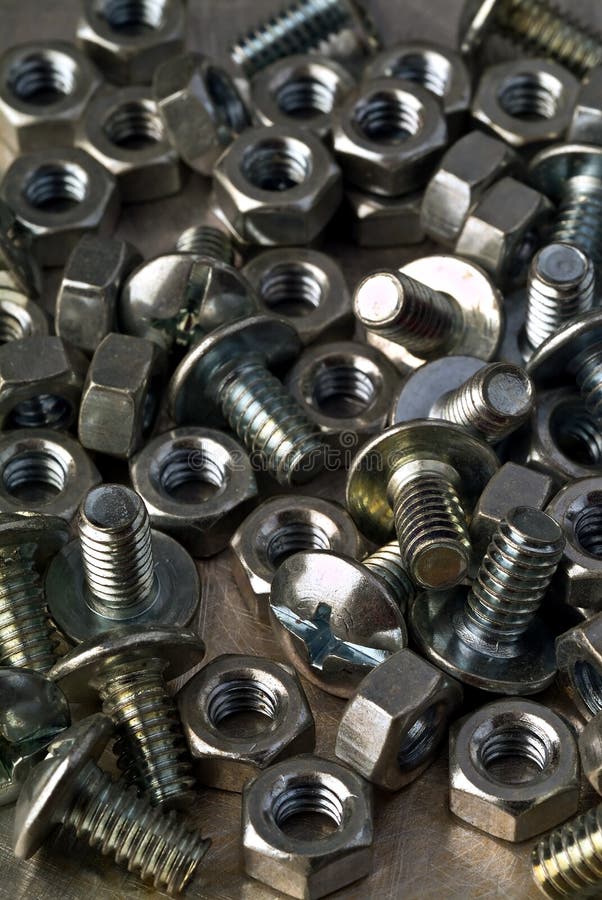In the world of building, manufacturing, and DIY projects, nuts and bolts are the unsung heroes that hold everything together. No matter if you are constructing furniture, fixing a automobile, or embarking on a home enhancement endeavor, grasping the different types of hardware and their uses is essential. This exclusive guide will take you through An In-Depth Exploration of Nuts and Bolts, clarifying the essentials and aiding you explore the broad landscape of fasteners.
From the most popular types of bolts and their intended purposes to the details of nut types and functions, we aim to decode the complexities of this vital industry. You will learn to recognizing the best bolts for industrial-strength construction tasks, investigate how to select the right hardware and bolt for materials like timber and metal, and comprehend the role of fasteners in various applications. With a detailed look at substances, finishes, and unique hardware, this guide will equip you with the knowledge you require to make informed decisions, be you a professional professional or a weekend warrior taking on your initial DIY task.
Varieties of Fasteners and Screws
Nuts and screws are essential elements in many industries, providing the necessary linkages for a multitude of applications. Bolts are commonly used to secure components together, while nuts serve as the complement to these fasteners, ensuring a strong grip. Comprehending the distinctions between multiple types of bolts, such as hexagonal, cart and fast screws, is essential for picking the right bolt for your specific needs. Each screw type is designed for particular applications, making it vital to pick carefully based on the project's needs.
When it comes to fasteners, there is a large array of options on offer, including regular nuts, secured fasteners, and washer nuts. Standard fasteners are commonly used in a multitude of applications, while lock fasteners provide extra security by preventing unscrewing due to movement. Washer nuts include a built-in base-like base, which distributes the load uniformly and helps diminish the risk of injury to the materials being fastened. Understanding these variances will help you determine which nut best complements your chosen fastener type.
In addition to the standard types, special bolts are available for particular applications. These include tamper-proof fasteners that are tamper-proof and nylon lock nuts that incorporate synthetic inserts to provide extra safeguarding against unscrewing. Furthermore, foundation bolts are crucial for securing structures to foundations, while expandable screws offer better strength in multiple materials. By getting to know yourself with these types of nuts and screws, you can guarantee that your bolt choices are both effective and trustworthy.
Materials and Finishes
When it comes to nuts and bolts, the selection of material significantly impacts their performance and durability. Steel is one of the most popular substances due to its strength and cost-effectiveness. Within the iron group, there are various types and variations, including carbon steel and composite steel, each suitable for different applications. For projects requiring light yet robust fastening solutions, titanium is an outstanding option, providing resistance to rust and high temperatures. On the other hand, brass provides excellent rust resistance and is often utilized in electrical applications.
Finishes play a crucial role in enhancing the longevity of nuts and screws, particularly in conditions prone to humidity or corrosive substances. Zinc plating is one of the most common coatings, providing a protective barrier against oxidation and degradation. It's essential to differentiate between zinc-coated and hot-dipped fasteners, as galvanized screws undergo a more robust finishing process, enhancing their durability to the elements significantly. Grasping these differences is essential for selecting components that will maintain their quality over time.
In addition to defensive coatings, the surface treatment of nuts and screws can influence their friction characteristics and overall performance. Specialty finishes, like those present on rust-resistant nuts and bolts, can additionally enhance performance in particular settings, such as outdoor construction or marine conditions. When selecting fastening components for particular projects, considering both the material and finish can lead to maximum durability and reliability in the use.
Buyer Guides and Comparisons
While picking fasteners, comprehending the variations between metric and imperial system systems is important. Washer Nuts are assessed in mm and are frequently used in European and Asian products, while imperial fasteners are based on inches and are prevalent in North America. This separation can affect your project considerably, notably if you must replace or correspond existing fasteners. Spend the time to recognize which system is appropriate for your needs and ensure that you have the correct tools to measure both types properly.
Correctly measuring nuts and bolts exactly is key to a successful installation. The major parameters to consider include width, length, and thread pitch. For bolts, you will have to measure the shank diameter and the measurement from the bottom of the head to the end of the bolt. For nuts, ensure that the internal size corresponds to the bolt's shaft size for a reliable fit. With correct measuring techniques, you can avoid compatibility issues that may cause project delays or failures.
Quality fasteners can significantly impact the durability and reliability of your projects. Search for reputable brands that provide concise specifications regarding their products' grades and material compositions. A bolt strength strength chart can help you grasp which types of bolts are most appropriate for high-strength applications versus basic tasks. Additionally, acquaint yourself with the vocabulary in a nuts and bolts glossary to make sure you choose the correct fasteners for your specific needs, whether for construction, car maintenance, or renovation projects.

